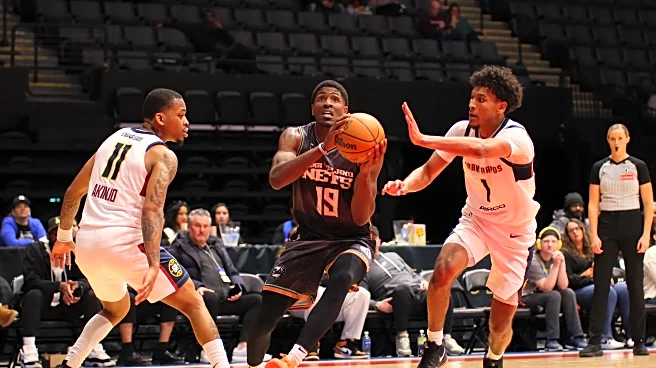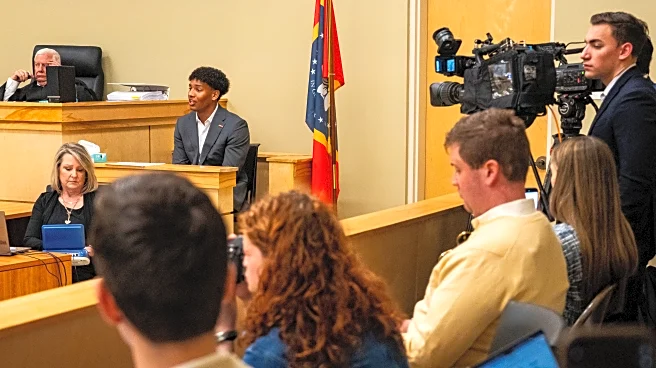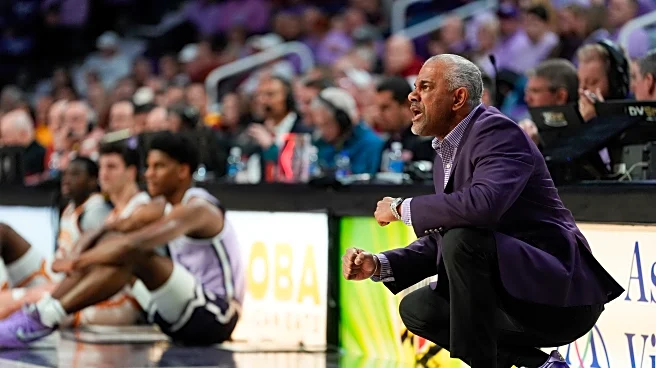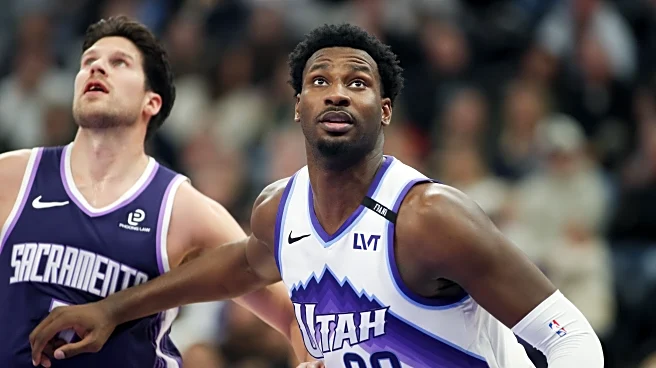What is the story about?
What's Happening?
Penn State University has dismissed head coach James Franklin after the football team suffered its third consecutive loss, most recently a 22-21 defeat against Northwestern. Athletic Director Pat Kraft announced the decision, citing the need for new leadership to meet the high standards of the program. Franklin, who has been with Penn State for over 11 years, leaves with a record of 104-45, tying for second most victories in school history. Associate head coach Terry Smith has been appointed as interim head coach. Franklin's departure comes amid criticism for his teams' performance against highly ranked opponents and a recent season-ending injury to star quarterback Drew Allar.
Why It's Important?
The firing of James Franklin marks a significant shift in Penn State's football program, which has been a national contender under his leadership. The decision reflects the university's commitment to maintaining competitive standards and could impact recruiting and team morale. Franklin's departure may also influence the team's strategy and performance in upcoming games. The financial implications are notable, with Franklin reportedly owed over $48 million. The change in leadership could affect Penn State's standing in the Big Ten and its prospects for future championships.
What's Next?
Terry Smith, the interim head coach, will lead the team as they navigate the remainder of the season. Penn State will need to address the challenges posed by the loss of their star quarterback and the transition in coaching. The university may begin the search for a permanent head coach, which could attract national attention and impact the program's future direction. Fans and stakeholders will be watching closely to see how the team responds to these changes.
Beyond the Headlines
The firing of Franklin raises questions about the pressures and expectations placed on college coaches, particularly in high-profile programs. It highlights the balance between athletic success and financial commitments in collegiate sports. The decision may also spark discussions on the ethical considerations of coaching contracts and the impact of leadership changes on student-athletes.
















